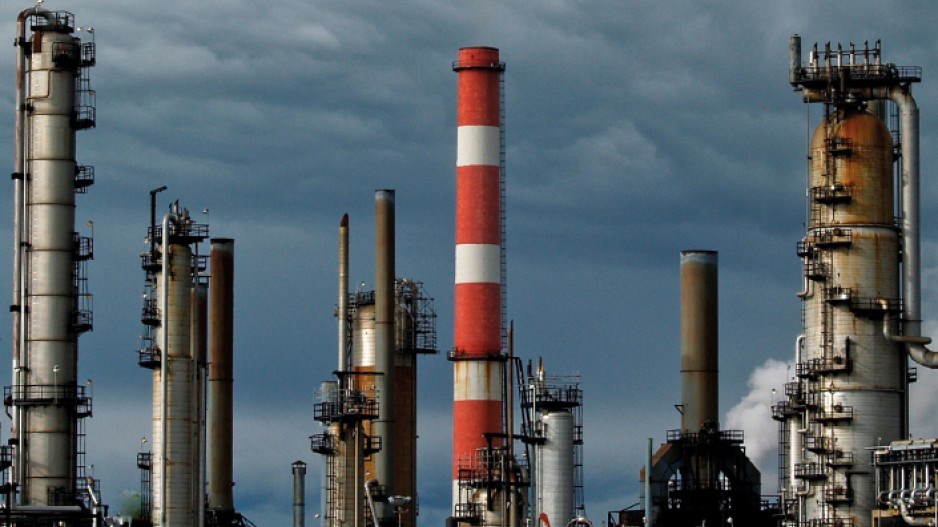BC wins hands down when it comes to the business case for building an oil refinery when compared with either China or Alberta, according to Kitimat Clean principal David Black.
The Victoria-based newspaper owner announced last week an audacious $13 billion bid to build a refinery in the province’s northwest. Based upon the proposed project’s business case, Black said that bankers in Toronto and New York have told him that if the refinery passes environmental assessment and Enbridge Inc.’s Northern Gateway pipeline is approved, he would be able to attract $13 billion from investors “in a week.”
Most of the construction related to the pipeline would take place in China using low-wage labour. Black said that parts would then be sent by freighter to B.C. to be assembled. He added that drastically lower prices for natural gas in B.C. than in China make the refinery more cost-effective to operate here because natural gas would be the main energy source powering the facility.
Workers’ wages would be lower in China than B.C. But low unemployment in Alberta would push up wages in that province both for the 6,000 workers who would build the refinery between 2014 and 2020 and for the 3,000 workers at the refinery once it is built. Construction costs for the refinery would also be higher in Alberta because the Chinese-built component parts of the refinery would have further to travel.
Black said that a final reason the refinery makes sense to build in B.C., as opposed to China, is that it requires fewer ships to transport refined products than it does to ship crude oil. “[With a Kitimat refinery] you don’t have to ship the diluent to the Far East and then bring it back,” he said. “That takes away about one-third of the tankers because the diluent takes one-third of the volume.”
The project’s biggest challenge is that it depends on Enbridge getting the green light to build its Northern Gateway pipeline from the Alberta oil sands through B.C. to Kitimat.
MJ Ervin & Associates principal Michael Ervin told Business in Vancouver that the Kitimat refinery would also face stiff competition from refineries that China plans to build, which will drive down the price of refined products such as gasoline, diesel fuel and kerosene.
Energy industry consultant John Hunter, CEO of J. Hunter & Associates, said Black’s proposed refinery project would benefit were it to secure long-term contracts with oil producers to guarantee it access to all of the 550,000 barrels per day of Alberta oilsands bitumen and diluent that Enbridge’s backers want to pump through the pipeline. Such contracts would safeguard against oil producers putting the oil on tankers instead.
Black, known for building the Black Press chain of newspapers, said he had created Kitimat Clean, a company that has committed to pay the “millions of dollars” necessary for an environmental assessment for the proposed refinery.




